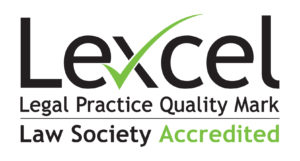Vicarious Liability
Many employers are unaware that they can be liable for the acts or omissions of its employees, provided it can be shown that they took place in the course of their employment. In Bellman v Northampton Recruitment Ltd the Court of Appeal held that an employer can potentially be vicariously liable for injury caused at a work afterparty, despite the fact that this occurred outside the workplace and outside office hours.
The Facts
Mr Bellman was employed by the Respondent, Northampton Recruitment Ltd, as a sales manager. On 16 December 2011 the company held a Christmas party for its staff, which was attended by the managing director of the company, Mr Major. As the party was drawing to a close, Mr Major paid for taxis to take some of the guests onto a hotel for further drinks, the majority of these also paid for by the Company. After a couple of hours, the remaining guests discussed the Company’s business, which led to an argument about a new employee’s terms of employment. Mr Major became cross and summoned staff to give them a lecture about his authority. When Mr Bellman questioned Mr Major’s decisions, Mr Major punched Mr Bellman causing brain damage.
The Decision
The claim that the company was vicariously liable for the actions of the director was initially dismissed by the Judge. This was on the basis that the drinking session became of a very different nature to the Christmas party and was unconnected with the Respondent’s business. However, the Court of Appeal held that two key matters needed to be considered: (1) the nature of the employee’s job, and (2) whether there was a sufficient connection between his job and the wrongful conduct to render vicarious liability appropriate. It was decided that this case arose because of the way in which Mr Major chose to exert his authority, indeed his dominance as the only real decision-maker, in the company. On that basis there was sufficient connection between Mr Major’s field of activities and assault to render it just that the Respondent company should be vicariously liable for his actions.
Employers should ensure they take reasonable steps to prevent any acts or omissions occurring that they can be held vicariously liable for. At FTA Law we can offer advice on all aspects of an employer’s duties towards their employees. Please contact us on 0330 088 2275 for further information.
The team at FTA Law provides advice to clients across the commercial and healthcare sectors with many of our instructions coming from referrals from long standing clients and industry contacts.
Contact usWe understand that price is a big concern for our clients and we always aim to offer a fixed fee for our services.














